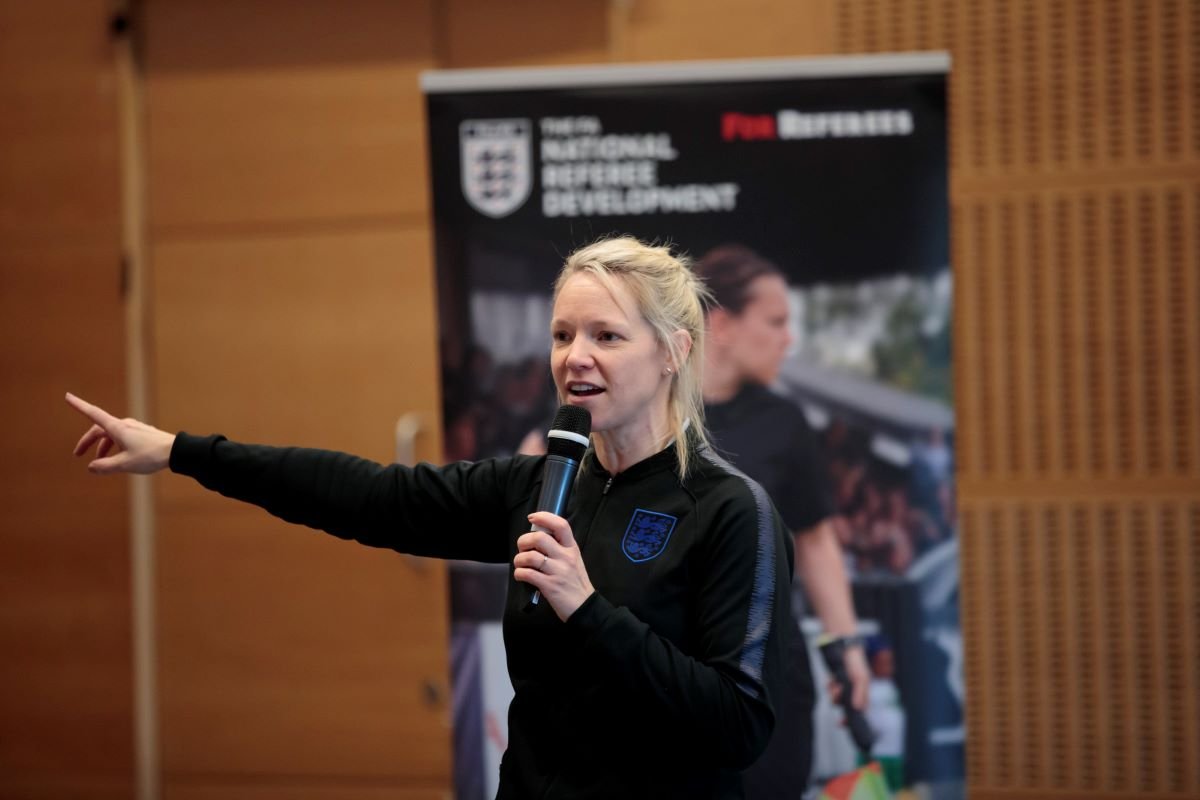
Throughout May and June, The FA is reviewing the impact of The Gameplan for Growth strategy on the women’s and girls’ game.
This week, The FA reviews how The Gameplan for Growth increased the number of female referees and raised standards throughout the women’s and girls’ game.
THE PRIORITY:
The Gameplan for Growth committed to “increase the number and diversity of women refereeing the sport at all levels” by developing The FA’s refereeing structure.
RESULTS:
• 2,146 female referees across all levels of the game – 72% increase since 2016
• 63% of games in the Barclays FA Women’s Super League with a female referee in 2019/20, a 20% increase over the last four seasons
• 55% of games in the FA Women’s Championship with a female referee in 2019/20, a 25% increase over three seasons
• The introduction of a match official evaluation system in the Barclays FA Women’s Super League
• 98.3% of correct decisions made by match officials in the Barclays FA Women’s Super League
• 115 referees attending The FA’s Grassroots Development Day in 2020
• Four female referees and five assistant referees now on the FIFA list of match officials
Joanna Stimpson, Women’s Professional Game Refereeing Manager
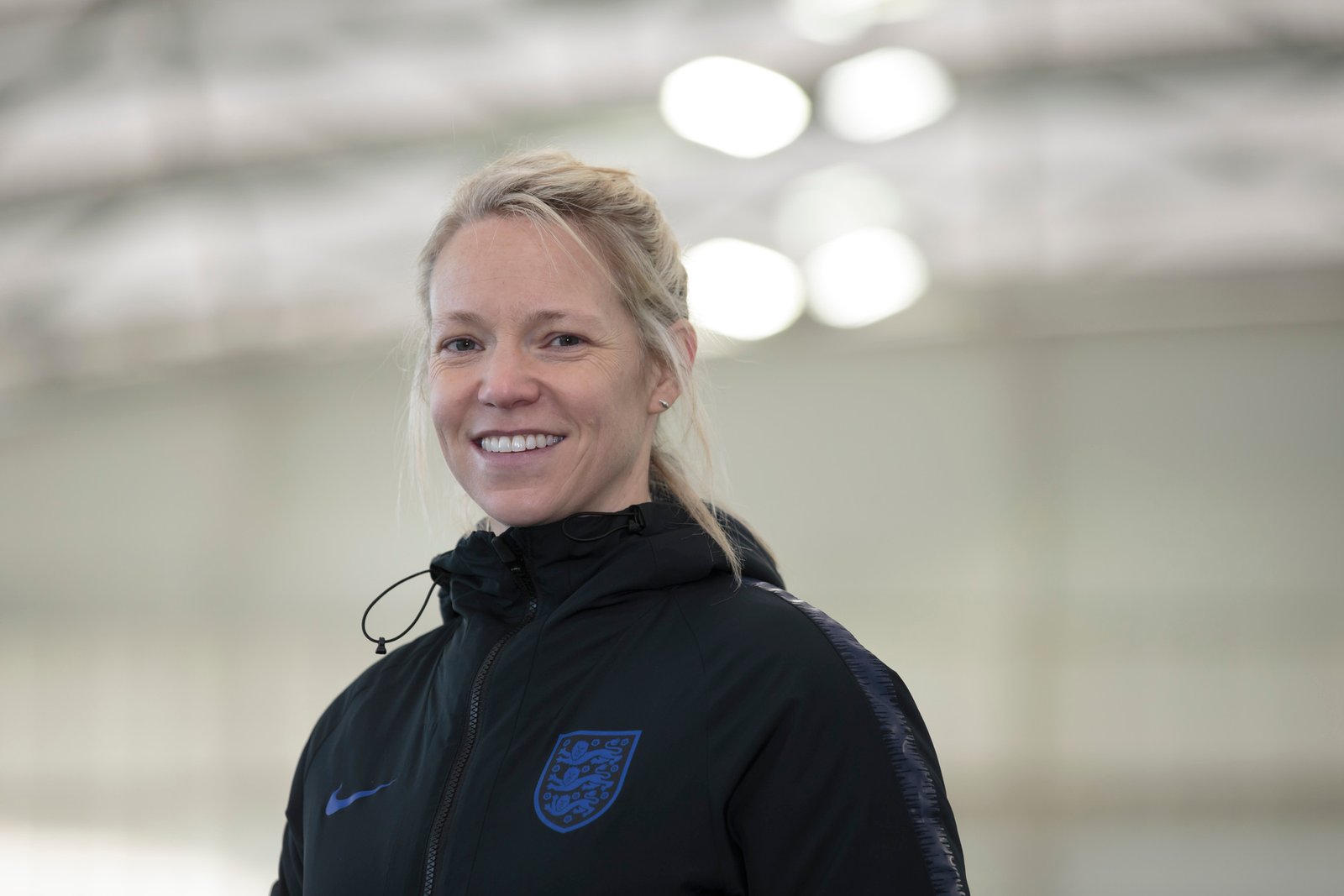
In 2017 I was recruited as The FA Women’s Refereeing Manager with two main objectives, to increase the number of female referees across both the women’s and men’s football pyramids and to raise the standard of the referees operating in the rapidly evolving women’s game. The overriding ambition was for The FA to become a world leader in women’s refereeing.
My journey into the world of refereeing originated as a player. I played for my home club Street FC and like anyone at a local club you get roped into additional roles to help out. On Saturday mornings I began refereeing the under-14s girls’ team. Having little knowledge of what I was doing I chose to register and complete the basic referee’s course with my County FA. I enjoyed the course and started refereeing regularly on both men’s and women’s grassroots game. I got the ‘bug’, stopped playing, applied for promotion and progressed through the Somerset FA system quickly, coming through the men’s pathway into the semi-professional game and onto the FA Women’s Super League.
It was a great learning opportunity and gave the best possible grounding for the job I have now. I experienced first-hand the challenges that exist for female referees and how difficult it was to navigate the pathway. Refereeing became my profession when I became the Referee Development Officer at Somerset FA, where my role was to develop and implement a training strategy to support grassroots referees achieve their personal ambitions and fulfil the needs of our affiliated leagues.
Back in 2017, we needed to drive change. Change needed a strategy and a long-term vision. It was going to be complex. Refereeing had not quite managed to keep up with the rapid acceleration of growth of the women’s game. Cue a whirlwind four seasons but some clear progress. The headline figure is that the number of referees has increased by 72% to 2,146. But it’s the story behind these figures that makes me particularly proud.
Over the last four seasons we’ve focused our attentions at the elite and grassroots level of the game. Our work at grassroots was fundamentally about recruitment, targeting our existing pool of players across junior and adult age groups] as the core target audience and actively ensuring that there are opportunities for all people from all backgrounds to get involved in the game as referees. We needed to change perceptions, a phrase you will be familiar with across our work in the women’s game. We had previously shied away from promoting what is good about female refereeing. We changed our mindset, actively promoting refereeing as a hobby, a part-time job, for fitness, fun, friendships, learning, as a potential career option and as a gateway to some incredible experiences.
Crucial to our recruitment drive has been collaborative work between the County FAs and our women’s and girls’ grassroots clubs and leagues across the country. County FA development staff working within their girls’ clubs and leagues to deliver referee development to their players, not just raising the profile of women’s refereeing and the opportunities it encompasses but also using the knowledge and skills required as a referee to develop them as players.
We needed to treat refereeing in the women’s game as different to the men’s. The game is played differently, the players behave differently, and the environment is different. The creation of the newly created women’s game referee pathway is a game-changer for our long-term progress.
Established at the beginning of the 2019-20 season, it provides referees with a clear structure uniquely through the girls’ and women’s game from grassroots through to a FIFA match official. We want this pathway to challenge them, to develop them as people and for the few who want to go all the way, give them the opportunity to be the best in the world.
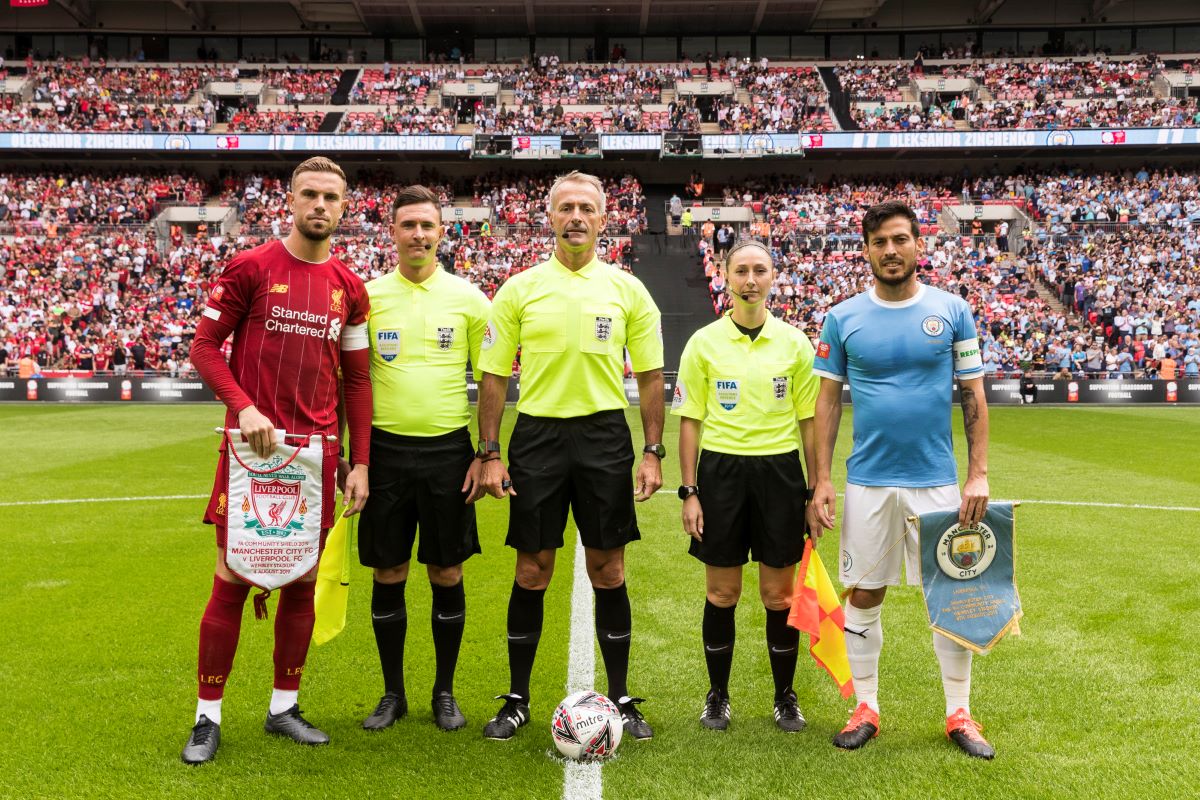
Role modelling is key to the pathway’s success, championing those from all backgrounds who succeed as an inspiration for others to follow suit. We currently have four female referees [Rebecca Welch, Abi Byrne, Stacey Pearson, Kirsty Dowle] and five assistant referees [Sian Massey-Ellis, Helen Byrne, Natalie Aspinall, Lisa Rashid, Melissa Burgin] on the FIFA list of match officials. They are our representatives on the world stage. We want referees of all ages up and down the country to know who they are, understand their journey and have the ambition to follow in their footsteps. What is so pleasing is our group of elite referees understand the role they can play inspiring the next generation and as a result they are so generous with their time.
Specifically, at the elite end of the women’s pyramid, we needed to invest time and resource to educate and develop our senior match officials operating within the Barclays FA WSL and FA Women’s Championship. The creation of our senior development group has provided all Barclays FA WSL and FA Women’s Championship match officials with personal development – bespoke to the women’s game – and an individual specialist coach who offers one-to-one support prior, during and post-matchdays. I know from my time as a referee that one poor decision can sometimes eat away at a referee for days after a match. This support structure allows constructive one-to-one discussion around individual decisions and crucially it encourages self-reflection on performances, which is such an important part of ensuring match officials are continuously learning and developing.
Fitness requirements have previously been a barrier for female match officials and restricted their progression. We have created a strong partnership with PGMOL [Professional Game Match Officials] who provide bespoke support, education and training programs to ensure the highest levels of fitness and minimise the risk of injury.
The Barclays FA WSL now implements the same forensic match evaluation system that is used by PGMOL in the Premier League, driving higher standards. It provides video analysis of every decision and non-decision made by officials and can identify the common trends to allow us to tailor professional referee development across the women’s game. We have seen over the course of this season that 98.3% of decisions have been correct. When you consider on average match officials make 340 decisions in 90 minutes, that’s a big proportion of correct decisions and shows we are operating at a high standard but with room for further improvement.
The work we have done heavily focuses on increasing development opportunities for female match officials. Our intentions were best demonstrated by two back-to-back weekends in March of this year. The first weekend we welcomed over 100 female referees from all backgrounds for our annual grassroots development day at St George’s Park. Referees from as young as 14 spent the day with FA staff, tutors and senior referees, providing referee education but most importantly giving them an opportunity to network, engage and share their experiences with their female colleagues from across the country. The following weekend we hosted the senior women’s training camp, which is one of two annual camps specifically for those working in the elite game. It was attended by all female referees operating within the Barclays FA Women’s Super League and FA Women’s Championship. The weekend included fitness and nutrition sessions, as well as bespoke professional development from the findings of the evaluation system.
The camaraderie at both events show that we have started to build a real community at both ends of the pyramid, where everyone looks out for each other and learns together. Many of our younger referees have adopted the hashtag #Girlsthatref to share their experiences on a weekend and seeing their pride in being a referee is something I find so inspiring.
Our work over the last four seasons has built strong foundations and I believe there’s never been a better time to be a referee, especially a female referee. The opportunities and support available is the best it has ever been but as the game continues to grow, we are under no illusions that we need to keep pace and ensure we are giving our referees the best possible support. Are we where we want to be? No, this is an ever-evolving, long-term journey and the 2020-24 strategy will reveal how we intend to drive higher standards and grow our numbers, increasing opportunities for female referees from all backgrounds.
Our success over the last four years would not have been possible without the dedication of our volunteer referee developer workforce. Our County FA Referee Development Officers have adopted women’s refereeing as a priority and have been central to our journey – we owe them a huge debt of gratitude. And thank you to the 2,146 female referees who commit week in, week out to support football matches across the country, you are at the heart of every decision we have made and will continue make in the future.
CASE STUDIES:
Stacey Pearson – Barclays FA WSL and FIFA Referee
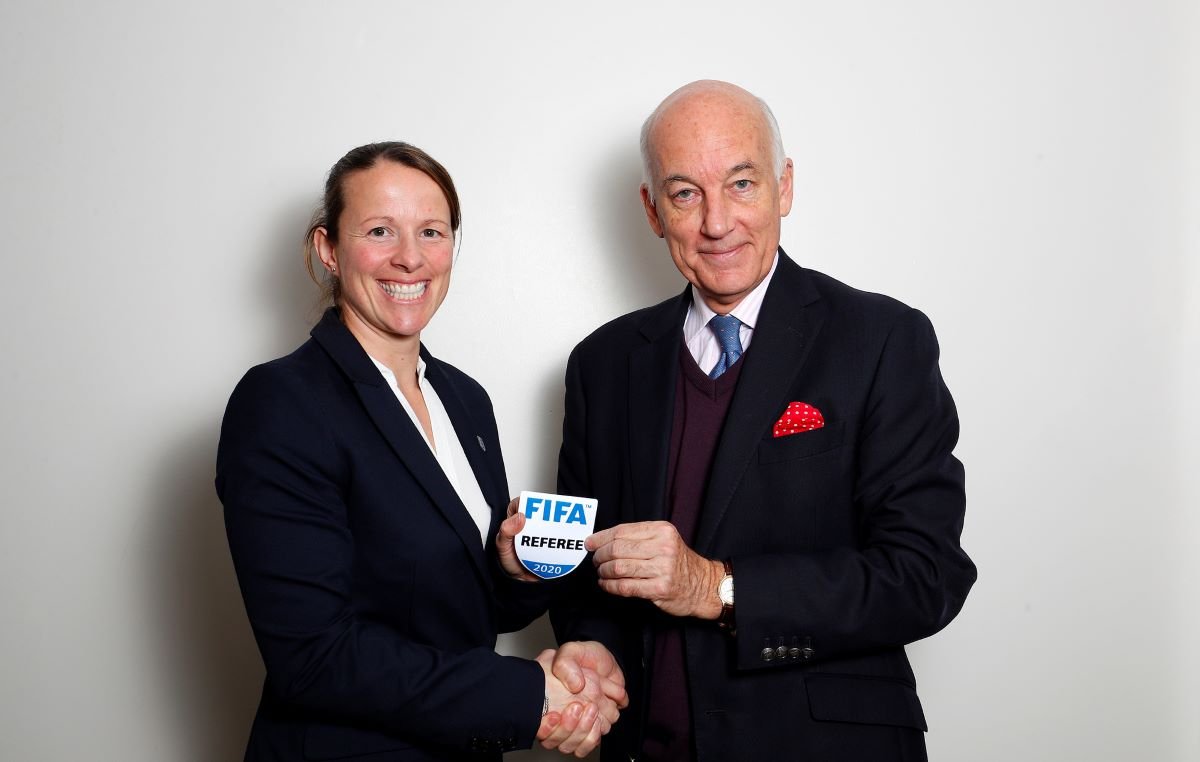
“As a PE teacher and a player at Yeovil Town Ladies, I thought it was useful to have another skillset and qualification, so in 2012 I completed my refereeing course. At the time, I didn’t think I would take it up as a career, however whilst juggling playing and refereeing, I realised my priorities had changed and I decided to give up my playing career.
At that point, the Referee Officer at Somerset FA, Keith Buller, was a huge influence on why I completed the referee course. He sadly passed away in 2015 and after that, I felt like I needed to give something back, so I decided to take refereeing more seriously and ended up working my way up the promotion ladder to a Level 3 referee in the men’s game. During this time, I was assigned a refereeing coach from the Somerset FA called Guy Beale. Without him, I don’t think I would be where I am today. His support and guidance allowed me to work my way up in the women’s game and referee in the Barclays FA Women’s Super League.
With the growth of the women’s game, the biggest change as a referee has been the increase in the pressure to make the right decision. As a result, The FA introduced the refereeing evaluation system for the Barclays FA WSL. It now means after each game we evaluate all our decisions with an official evaluator. At first, people were surprised at the brutality of it, however it’s been a huge reason why so many of us have developed. After evaluating why I have made certain decisions on the spot, I have been able to take those learnings into future games.
It’s important to give young girls the opportunity to solely focus on the women’s game and the introduction of the female only pathway has been a great addition for females who don’t want to progress through the male pyramid. Instead they can work their way up the female pyramid, which hopefully will open up more opportunities for referees who have a passion for the women’s game.
At the end of last season, The FA nominated me for the 2020 FIFA list of match officials. Last December I found out I was successful and had officially made the list. This was a huge moment for me and something I am so proud of; I know Keith Buller would be too. As a referee it’s an incredible feeling that The FA trusted my ability to put me forward for the biggest stage. I can’t wait to get started and represent The FA and my country once football is able to return.”
Cristiana Hattersley – FA Women’s Championship Referee
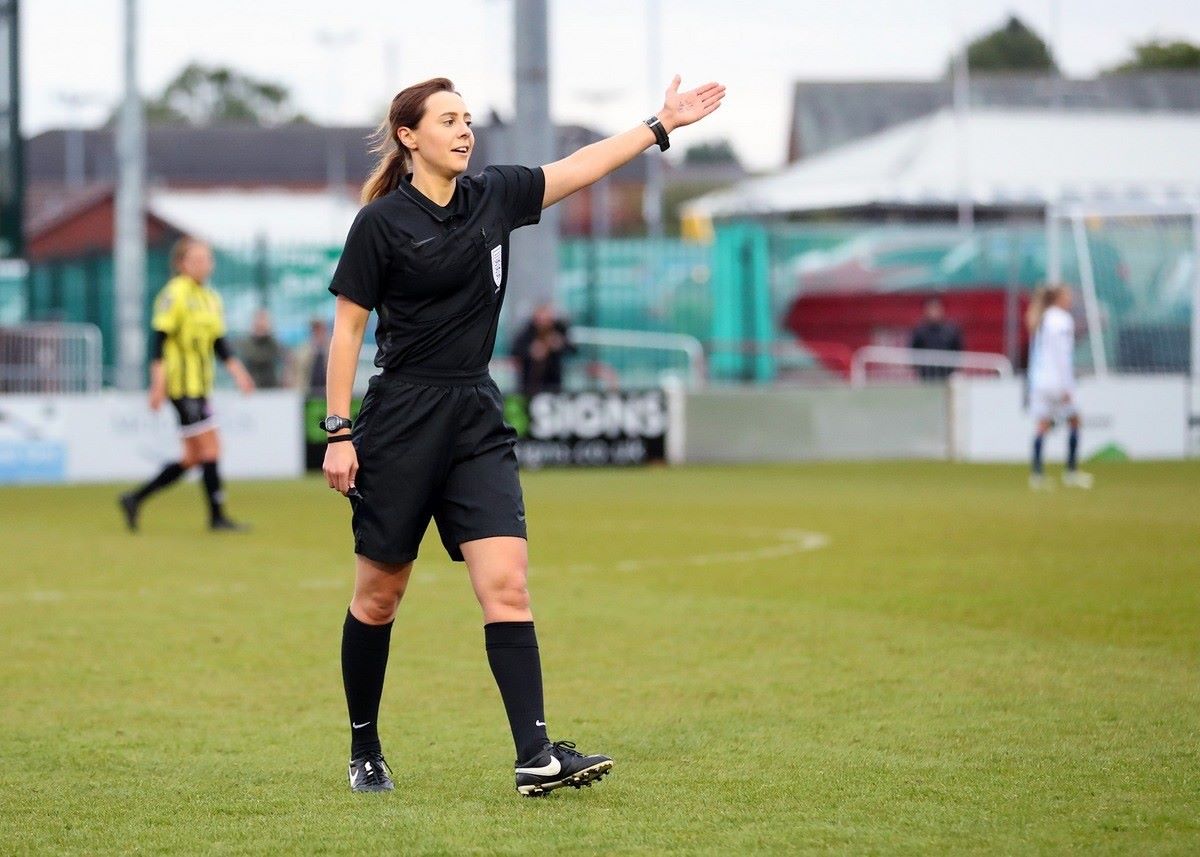
“My journey to becoming a referee started when I was 14 years old when I took up a refereeing course with my dad just to get a bit of pocket money. I was 16 when I was allocated a refereeing coach who invited me to a development meeting for grassroots referees. If it wasn’t for that moment, I’d most likely still be refereeing youth matches every weekend.
In my career I’ve had great experiences refereeing in the FA Women’s Championship and as an assistant referee in the Barclays FA Women’s Super League. The women’s game has grown, and with that there are more fans, more media and more pressure, but that’s what makes the games more exciting. I absolutely love travelling up and down the country and refereeing these games every weekend. Refereeing can be a big sacrifice, but I wouldn’t have it any other way.
Since I started refereeing, the opportunities for female referees has improved dramatically. When I first started, you didn’t really hear of opportunities for females to choose refereeing as a profession. Now, The FA’s grassroots event provides referees from all ages with the chance of learning, developing and improving their skills with the aim of recruiting more female referees in the women’s game. Each year the event has improved in terms of attendances, coaching staff and workshops so it’s exciting to be part of that and see where the pathway is leading.
The FA’s support in encouraging me to join various groups such as the National Centre of Refereeing Excellence’s Core Programme and the senior refereeing group, have pushed me further than I thought I could go. The women’s refereeing group has developed into more of a family over the past three years, so I’m extremely thankful to The FA for bringing us together as a community.
A great introduction for this season was the evaluation system. We get the chance to develop our skills and learn from our correct and incorrect decisions and focus on what we may do differently next time. It’s important to work on our mental resilience and working with my coach Jane Simms has enabled me to do that. In this game, if we don’t acknowledge and learn from what we have done wrong, we won’t progress.
I’ve been lucky enough to have refereed in some brilliant games, however this season’s Merseyside derby is the best moment of my career so far. Walking out at Anfield with over 20,000 fans cheering and creating a fantastic atmosphere was just unbelievable. During our warm up myself and the other match officials ran a lap of the pitch in our warm-up and it was amazing to see the families with young girls there to cheer on the women’s game. I really did feel like we were part of something that was inspiring the next generation. As a female referee who started as a 14 year old girl just wanting to earn pocket money, I felt a huge sense of achievement at that moment.”
Tia Collard – Somerset FA Referee
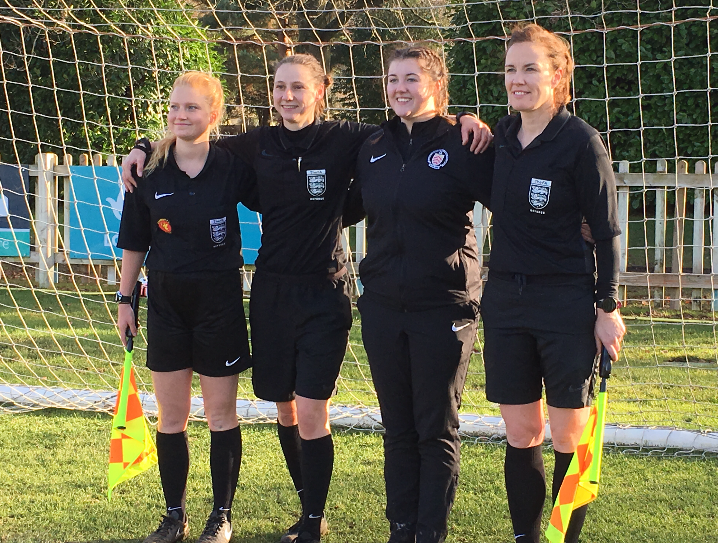
“When I was a young girl, I didn’t have a passion for refereeing and instead focused my attention on playing football. Then when I was 14, I saw an advert for a refereeing course and thought ‘why not?’My first thought was it would allow me to have a different perspective of the game, and I could possibly referee a couple of Sunday matches at my local park.
However, on the refereeing course, I realised there was a lot more to it than just making a quick decision. I enjoyed it so much more than I thought I would and quickly concluded that it was something I wanted to explore more. I got in touch with the Somerset FA and my journey began from there.
Since then, The FA and the Somerset FA have supported me a huge amount. From working with Joanna Stimpson and The FA refereeing team, to Matt Eva [my County FA Refereeing Development Officer], they have been there to support, provide advice and introduce me to a network of other grassroots referees. This has been paramount to my development and without their support, I wouldn’t be where I am now.
One of my biggest learnings on my refereeing journey was attending the grassroots female refereeing development day at St George’s Park. As part of the day, I heard from other female referees who had just returned from a trip to Belgium and at that moment, I realised as a 17-year-old that’s what I wanted to aim and push forward for. Elite referees, Lisa Benn and Jane Simms, worked with us on various workshops such as decision making and the rules of the law. One of my favourite moments was the practical aspect of the day where we got to go out on the fantastic pitches at St George’s Park and work with the coaches on using flags and keeping up with the game. I’m so glad Matt put me forward for this event as it allowed me to meet other young like-minded females who are as determined as me to make it as a female referee.
My next step was to aim for promotion. Shortly after, I received an email with information about promotion within the women’s refereeing pathway. It sounded perfect for me as I knew I wanted to stay in the women’s game as it’s a setting I feel more comfortable in. Within a year, I had reached the promotion and this season I’ve now refereed my highest number of female games since I started on my journey; something I’m extremely proud of.
As a grassroots referee, seeing the growth of the women’s game and the acknowledgement that both players and match officials receive is amazing. I’ve heard so many times that female referees aren’t as good as male referees, however I think over the past few years that attitudes are changing. Female referees now have a proven place in football, and I can’t wait to hopefully play my part by refereeing in the Barclays FA Women’s Super League in the future.”

